It was the Sunday after Christmas. 26 December 2004. You can say that it started out quietly, like every other morning. Even the ocean had been unusually calm the past few days. The waves you would usually hear crashing against the sand, weren’t as loud. It was a usual day story.
All in all, it truly did feel like a quiet Sunday. I mean, had it not been for the birthday celebrations which had gone on late into the night, this morning would have been no different. Not only was it Jesus Christ’s birthday but Ajay’s daughter’s, too. However, to say everything was like it had always been, would be an illusion. We get so used to life being a certain way, we forget that a new day is truly a new one.
‘Can you make me a cup of tea?’ Ajay called out in a groggy voice to his wife Rama, who was already up and about.
‘Ssh…’ she came running into the room and said, ‘You’ll wake the kids up.’
Their daughter, Nilya, whom they called Bulbul, had turned seven the night before, and their one-year-old son, Neeraj, slept peacefully in the next room. Safe, unaware, and wrapped in a warmth that can come only when you know that your parents are your guardians, the angels who will protect you against all odds. And Air Force Sergeant Ajay Chauhan could protect; he was tall, agile and competent.
Rama went into the kitchen to make tea while Ajay picked up the newspaper to browse through the sports section. Team India was to play against Bangladesh that day.
He was sure of India’s victory since they had won all the matches in the series so far. Therefore, there was a natural disenchantment while going over the cricket news. Elsewhere in the newspaper, there was a report of Atal Bihari Vajpayee’s eightieth birthday celebrations and one about the securing of a cremation ground for another former PM of India, P.V. Narasimha Rao, who had died just three days earlier. There was also the news about Lalu Prasad Yadav meeting the election commissioner and some criminal snatching a bag containing `4.75 lakh.
Ajay got up to switch the TV on while waiting for his tea. It seemed Rama was taking longer than usual to prepare it, when he heard some commotion outside. They lived on the first floor of their building, and on the ground floor, their neighbours were having an argument. A noise of this magnitude was totally unheard of in this part of the world. After all, this was the naval air base, and the discipline, quietude and order that course through cantonments, were the norm here.
He opened the window and peeked out. Rama was already downstairs and visibly anxious.
‘What happened?’ he asked her, and she looked up after hearing Ajay’s voice.
She raised her hand, asking him to wait, hitched her saree and ran back upstairs.
‘We have to leave!’ she screamed, panting and puffing. ‘Get the kids.’
‘Calm down,’ Ajay said, while he held her by her arms. ‘What happened?’
‘There’s a flood, maybe an earthquake,’ she cried. ‘We must leave right now.’
‘Relax!’ Ajay shook her. ‘There’s no river, no rain. What floods! Look at the road, it’s as dry as a desert.’
‘You have to trust me, Ajay,’ she said. ‘I felt tremors while making tea. Something bad is happening. We must leave.’
‘There are no tremors during a flood! Let’s have our tea.’
But Rama was not listening anymore and she ran to the kids’ room.
‘Wake up, Bulbul!’ she shook her daughter and lifted her son in her arms.
‘No! It’s Sunday, let me sleep,’ she said, rolling over. ‘Ajay! Ajay!’ Rama screamed. ‘Help me! Take Bulbul.’
‘Okay!’ he said from just behind her. He scooped Bulbul up in his arms and kissed her cheeks. ‘Sorry, my daughter, but we need to go out. Your mum woke up on the wrong side of the bed today.’
They went downstairs, and it was already bustling with activity; everyone seemed to be running towards the main road. Some were shouting about floods and some, about an earthquake. Army trucks were already on the move.
‘Get in, get in!’ a cadet shouted, extending his hand out from the truck. All four jumped inside.
But what floods? Where? Ajay thought. The roads were completely dry.
Wham! The whole truck jolted as if hit by a charging elephant. Before anyone could figure out what was happening, the truck was submerged in water.
‘Get out, get out!’ the army personnel shouted. The water was rising by the second.
Ajay helped Rama, who was tightly holding onto their son, get out first. Neeraj was wailing. Next, he jumped out and got hold of Bulbul.
Wham! Another big wave came and Bulbul’s hand slipped out of Ajay’s. He looked in Rama’s direction and then in Bulbul’s. Neeraj was safe in Rama’s arms and she was being helped by his neighbour whereas there seemed to be no one in Bulbul’s direction. Ajay tried to run towards his daughter, but his feet were no longer on the ground, the current was taking him away. He had been trained under tougher conditions, and was certain he would save his daughter.
Making his way carefully through the water, he got closer to Bulbul. Wham! Yet another wave hit him like a resounding slap. It took him a few seconds to regain his senses. There was water in his ears, nose, mouth and eyes. Salty and muddy water. Very salty and very muddy and very cold.
Once again, he swam, with more resolve, in Bulbul’s direction, but she was nowhere in sight. He squeezed his eyes, trying to keep the burning sensation caused by the salt in them at bay, but he had to keep them open to spot his daughter. But it was as if she had just disappeared from the face of the earth.
Ajay heard a noise, as if he was very close to the ocean; he turned around and found himself staring at a twenty- foot high wall of water fiercely charging towards him. It was as if he was standing on the ground and looking at the roof of his two-storey home. Before he could figure out what to do, the demonic wave crashed against him, lifting and taking him with it wherever it planned to go next.
‘Don’t worry, I’ve got you,’ someone shouted, as Ajay tried to regain his balance. A colleague of his had grabbed him from behind as the water around them was rising fast.
A giant tsunami had hit Car Nicobar in the Andaman and Nicobar Islands, off the Indian Coast. This had been triggered by a massive earthquake that ripped apart the west of Sumatra in Indonesia, approximately thirty minutes earlier.
‘Leave me,’ Ajay tried to say aloud, more saline water getting into his mouth. ‘I have to save Bulbul, my daughter, she is just there somewhere!’ But the man continued to pull Ajay back. ‘Let go off me!’ Ajay shouted again, but the other man knew better.
The ocean water had made devastating inroads, more than 1.2 kilometres from the coast. The entire air base was flooded. The water level had risen more than twenty feet.
Soon, Ajay was taken to a dry area. Everything around had been destroyed. As if Mahakala had run through the area, like it was an apocalypse. The tidal waves of the tsunami had torn up homes, like they were made out of paper; ripped apart jetties; smashed fishing boats; reduced coconut trees to twigs.
An emergency area was set up as a temporary meeting point. Ajay put his head between his hands and wailed inconsolably, like only a parent would.
‘Bulbul doesn’t know how to swim,’ he howled. ‘She doesn’t know how to swim. She doesn’t even like water.’
Everyone had their own tragedies to deal with and yet, some people around tried to console the grieving father. A bit of kindness is worth more than any precious gift when you are lost and lonely. ‘Where’s my wife, my son?’ he asked and looked around, as if he had just woken up from a bad dream. ‘Bulbul, Rama, Neeraj? Where are they? Where’s my wife, my son?’
He was sobbing and repeating the words when, at a distance, he saw his neighbour on a motorcycle. His wife was sitting behind him and still holding tightly to their son. Thank God, my wife and my son are alive. I’ll find my daughter. Bulbul is brave. This water will recede very quickly.He ran towards the motorcycle like a madman.
‘Rama! Rama!’ Ajay screamed at the top of his lungs. ‘Thank God, you are safe. Thank God, Neeraj is safe,’ he said, stopping the motorcycle. And then, he snatched Neeraj out of Rama’s hands to hold him tightly, to smother him, the apple of his eyes, with kisses. Ajay kissed his son as if he’d just returned from a long war and was seeing him after years. This entire episode – from reading about the Indian cricket team to the present moment – had taken less than sixty minutes. And those sixty minutes felt like sixty years.
Neeraj’s body was cold from the splashes of the tsunami water. Ajay himself was soaked, as was his wife and friend, and there was no warm blanket nearby. My son must be feeling cold, he thought. And he cast a glance here and there to see if there was any dry or warm clothing nearby. But Neeraj seemed unaffected, even at peace.
‘You okay, my baby, my son?’ Ajay asked, stroking Neeraj’s soft hair and gently stroking his cold scalp.
Of course, Neeraj didn’t respond; the boy was only one year old and hadn’t yet started talking.
He never would.
His body wasn’t cold from the lack of heat but life. Neeraj was dead.
It took Ajay a minute to realize that. He frantically tried to revive him by performing CPR on him. They rushed him to the doctor in the camp, who declared him dead.
Between anxiety and disbelief, hope and loss, between sorrow and despair, celebrations and mourning, Ajay and Rama lived an entire lifetime in a few hours.
Like scavengers searching for food, they scoured the island, looking for their daughter. Rama was too shocked to do much more; her son had died in her own arms. But Ajay wasn’t ready to give up.
He could have saved his daughter. How could he have let her hand slip out of his? He was a marine par excellence, fit and strong. He had clambered down into ocean waters from planes, he could run up an almost vertical wall, and here he was, incapable of holding on to a tender, little hand. No, it couldn’t be right.
The next day, due to a mandatory evacuation order, they were airlifted from Car Nicobar and shifted to a base in Chennai. Without their son, and without their daughter. But they were not alone. Immense grief, pain and unbearable sadness huddled around them, keeping them company.
Ajay’s story doesn’t end here. Years later, he met me and narrated this horror in person. He had come to me with hope. Great hope. With a feeling that I might be able to help him trace his daughter. I’ll tell you what happened, but more than the story, it’s the message I want to share.
When you look around, what do you see? Happy faces, smiling couples, tense looks or anxious people? Maybe all of these? Since childhood, we are told to be strong, to put on a brave face, to not cry or complain. We must not come across as weak to the rest of the world because the weak get exploited, they get crushed. It’s survival of the fittest, they say. In trying to be strong, however, sometimes we become so strong that we become indifferent.
Indifferent and insensitive to our own pain and to the pain of others around us. And to feel that bliss again, the kind we did as small children without a care in the world (not including our parents’ scolding or beatings), we try all sorts of things. From marijuana to meditation, from detachment through yoga to indulgence in youth, from blue pills to sleeping pills and everything in between.
True, or lasting happiness, however, still remains elusive. Do you ever wonder why? I have met thousands of people who have followed their religions, lived ‘by the book’, tried meditating and yet, sadness seems like a disgruntled ex who won’t stop stalking you. Is there an answer to this?
Maybe not. But I do have some learnings. Forget all that you know for a moment, put aside your religious and moral precepts, and let’s not get into what is right or wrong for the time being. Let’s walk away from the concepts we grew up reading in scriptures or yogic books.
Let me share with you the science of happiness. Don’t get me wrong – there’s always room for meditation, faith and your views about life. In fact, we’ll be using all these, but, for now, I must continue with the most important element. Yes, more important than meditation or any yogic practice you might have ever come across.
In Narada Samhita, the sage Narada asks Krishna where the supreme soul lives, as he wonders how to find that supreme bliss. Krishna replies:
na ahaṃ vasāmi vaikuṇṭhe yogināṃ hṛdaye na ca madbhaktā yatra gāyanti tatra tiṣṭhāmi nārada O Narada, I don’t live in Vaikuntha or in the minds of yogis. I live wherever my glories are sung lovingly.
But what does it mean to sing his glories? Is it singing gospel, Sufi qawwali, doing kirtan or reading scriptures out loud? Are religious people happier than non- believers? No, not necessarily. So, what is the mystical path to happiness, if any?
The good news is, it is possible to experience a near- constant flow of bliss in your life. Your situation may still be painful, people may still hurt you, success may still elude you, or life may still be difficult, but you will remain steadfast in your highest state of consciousness. And this can be achieved for the most part of your day, nearly twenty-three out of the twenty-four hours.
As I said, please put away all that you have learnt so far. In this book, I am not asking you to meditate, I am not telling you how mantras can transform your life ( here are some powerful mantras for miracles), or how you can experience samadhi. People who live through such things are only marginally better off than those who don’t. Instead, I’d like to share with you something even more powerful and practical. It works.
Let me take you back to Ajay’s story. His could have been anyone’s story; yours, mine or someone else’s.
If my message finds its way into your heart, the rest will come to you naturally, because accomplishing any feat becomes whole lot easier once you have your heart set on it. And it is your heart we need to look into.
Your mind is fine. It can focus, think, process, analyse, internalize. But it is your heart that interests me. That’s where everything builds up. The brain only processes what the heart is feeling. And our heart can feel a million things in just one day. We just need to connect with it, so it feels the one thing that matters most.
This is an excerpt from the first chapter from my newest book, The Book of Kindness. The story continues in the second chapter. In case, for whatever reason, you can’t buy the book, you can watch the last Swaminar in the Black Lotus app where I read out the first two chapters.
Peace.
Swami
Editorial Note
Course
Art of Meditation
Free yourself from suffering and live life to the fullest. Learn the yogic technique of meditation in 4 days (and master it over a lifetime)
To a suffering human heart, there is little else that bolsters like hope and faith. The FAQs below have more examples of humanity’s capacity for kindness and limitless compassion. Some of them even contain a heart-touching story!
What is the significance of Random Acts of Kindness (RAKs)?
An unexpected gift at an unexpected time given to an unexpected (or even unsuspecting) person with no expectations in return is a random act of kindness, a kind gesture for someone who is not expecting it from you. You do it because your heart is open.
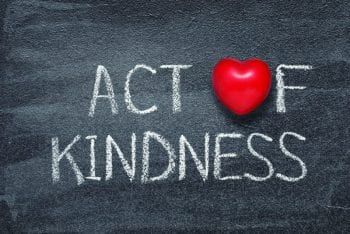
A random act of kindness needn’t always be a material offering. Even a word of encouragement, a compliment, a helping-hand could be equally, if not more, profound.
When you regularly do random acts of kindness, one day, something amazing happens — Nature chooses you as the subject for its random act of kindness. Such kind acts are always happening in the Universe, at every moment, to millions out there.
Even rains, breeze, snowfall, sunshine, flora and fauna, origination, sustenance — these are cosmic acts of kindness.
Whatever you share, it grows — this is the fundamental law of the universe.
Continue reading about Random Acts of Kindness and its spiritual significance.
What is the opposite of kindness?
What is the opposite of kindness? Is it being unkind to others? No, my friend, it goes way deeper than that.
The absence of kindness is the opposite of kindness.
Just as an absence of light marks the presence of darkness, when we don’t experience kindness in our hearts, we are being unkind. To be unkind is not just about acting unkindly. It is also to not be kind when we can, to refuse to act kindly.
Continue reading about the opposite of kindness through a heart-touching story of an old walnut-seller who was tricked before Swamiji came along.
Why is kindness important?
We may wonder if small acts of kindness actually make a difference to the doer or the world. We may think how will a little act change the world, but it does. Every action counts. Every drop matters. Every thought matters.

We tend to think that to change the world, we need something grand happening at a massive scale. So massive and so grand that it’s clearly beyond one person or a small group of people.
The truth, however, is that nothing would happen if everyone thought that someone else would do it, or what difference would a small act make. It does, it will. Always has.
Whether a mound or a mountain of sand, they are made up of tiny grains. If we took away one grain at a time, there’ll be a moment when nothing will be left.
Goodness and kindness are nurtured by living and experiencing such virtues in our ordinary lives, in our daily actions. Gradually, they seep into our consciousness and become our second nature.
Continue reading about why kindness matters through a heart-touching story of a king who discovers his subjects are not as honest or loyal as he thought they were.
What does it mean to be compassionate?
Compassion does not require a reason or reward, only a desire, a discipline. When your heart is as big as the ocean, people’s shark-like mistakes and tuna-like presence in your life will coexist without so much as causing a ripple in your mind.
Compassion and forgiveness are simply synonyms of sacrifice. You go beyond the shackles of ego.
True compassion is not based on the cause or the action, it is simply a virtue, a response, an emotion, a feeling, we choose over any other.
I know this is not an ideal world and, in the present day and age, it almost seems that compassion or forgiveness is considered a weakness, but let’s take a moment to read this heart-touching, inspiring story of Jesus Christ on the cross and what his response was.
Even if you have read it numerous times before, just reread and allow it to sink in. Do it as many times as you need or till a tear trickles down and you’ll know what I mean.
How does compassion bring happiness?
When you exercise compassion, it’s a divine emotion. When you do something for others, you are helping Nature grow. Nature is then interested in you. The video below speaks about how compassion helps us live a meaningful life.

Timeline:
- 0:21: The second principle of happiness – compassion
- 1:42: The story of the scorpion and the saint
- 5:20: The only virtue worth having
- 7:23: The story of the farmer and the mouse trap
- 12:36: The letter to Mahatma Gandhi
- 13:51: Sometimes, compassion is in rejection
A GOOD STORY
There were four members in a household. Everybody, Somebody, Anybody and Nobody. A bill was overdue. Everybody thought Somebody would do it. Anybody could have done it but Nobody did it.
Don't leave empty-handed, consider contributing.It's a good thing to do today.

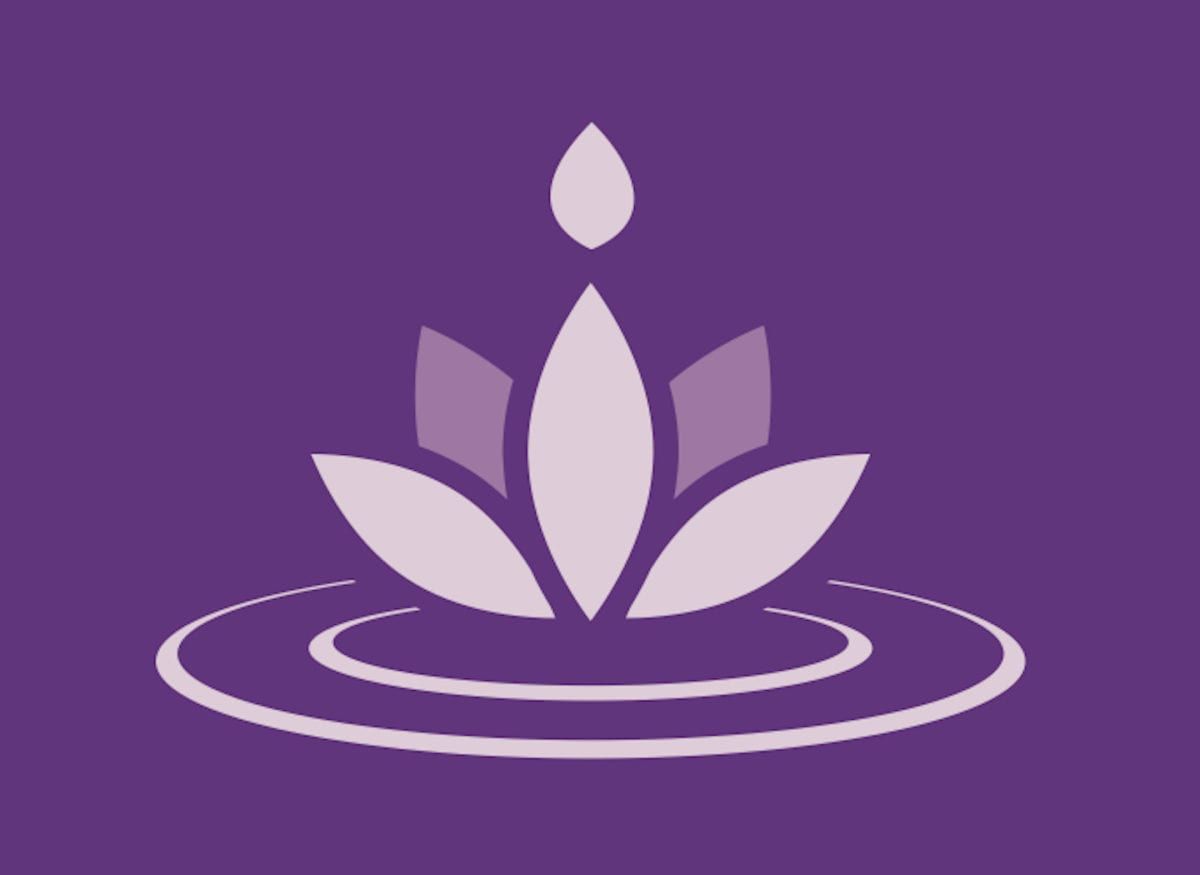


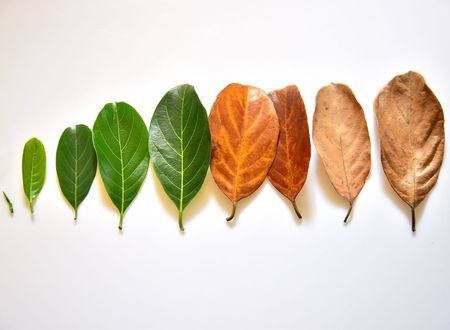
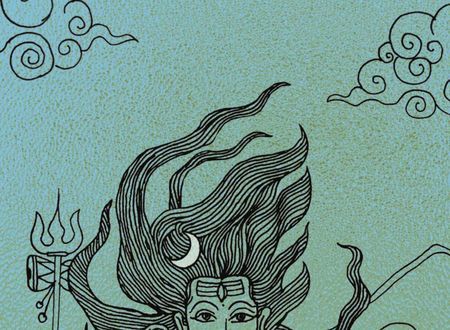
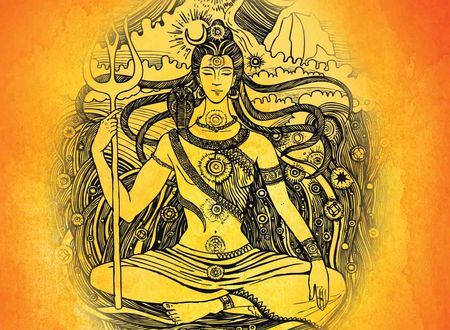


Comments & Discussion
50 COMMENTS
Please login to read members' comments and participate in the discussion.